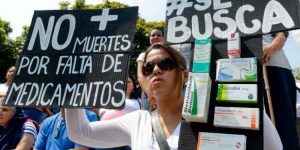 It is 3:00 in the afternoon and Maria returns home exhausted, with her hands empty. She feels that she has done very little all day when in reality she has simply not been able to find what she needs. She left on foot at 4 in the morning. Between 5 and 10, she stood in a long line at the hospital, prompted by the need to acquire medication to treat her HIV, and an antidiarrheal for her youngest child. Her son has been overtaken for days by insidious diarrhea. It does not stop, he barely eats and he doesn’t get up from the bed. When she arrived at the counter of the pharmacy, they had none of the things she needed. Hands empty, she walked down the hospital’s foul-smelling main hallway. It is littered with stretchers and makeshift beds on the floor for the patients who wait for a doctor to see them, a bed to be admitted to, and medication. She is dizzy from hunger and struck by that rare mix of resignation and despair, which overtakes her, pushing out the fear. On her way home, she will go to the market to buy some food, but she has no money, just a benefits card. The Card of the Homeland (Carnet de la Patria) is a state-sponsored mechanism for control and subordination. Without cash, today it will be, with any luck, a bag of carbohydrates and no protein. Another never-ending line snakes down the street around the market. It will be long hours of waiting, with the sun beating down, heating up the blacktop. Every so often an SUV speeds through the street, with tinted windows that hide happy people, with dollars that they have acquired thanks to a job in the government.
It is 3:00 in the afternoon and Maria returns home exhausted, with her hands empty. She feels that she has done very little all day when in reality she has simply not been able to find what she needs. She left on foot at 4 in the morning. Between 5 and 10, she stood in a long line at the hospital, prompted by the need to acquire medication to treat her HIV, and an antidiarrheal for her youngest child. Her son has been overtaken for days by insidious diarrhea. It does not stop, he barely eats and he doesn’t get up from the bed. When she arrived at the counter of the pharmacy, they had none of the things she needed. Hands empty, she walked down the hospital’s foul-smelling main hallway. It is littered with stretchers and makeshift beds on the floor for the patients who wait for a doctor to see them, a bed to be admitted to, and medication. She is dizzy from hunger and struck by that rare mix of resignation and despair, which overtakes her, pushing out the fear. On her way home, she will go to the market to buy some food, but she has no money, just a benefits card. The Card of the Homeland (Carnet de la Patria) is a state-sponsored mechanism for control and subordination. Without cash, today it will be, with any luck, a bag of carbohydrates and no protein. Another never-ending line snakes down the street around the market. It will be long hours of waiting, with the sun beating down, heating up the blacktop. Every so often an SUV speeds through the street, with tinted windows that hide happy people, with dollars that they have acquired thanks to a job in the government.
For how long can Maria and her family survive? What will be the consequences for the health and development of her kids? How long until the Venezuelan people give up, they who lack everything but have an overabundance of suffering? Is the Venezuelan regime the only one to blame, or are the hands of the international community also stained with blood?
Accurate and trustworthy information regarding the health and food crisis is sparse and censored, the predictable result of combining a fatal strike to all the public services and infrastructure, with the systematic suppressing by the government of the catastrophic evidence. After a natural disaster, for example, UN agencies, local governments, and wealthier nations do not ask for verifiable data, on the contrary, they act quickly in accordance with the emergency. In Venezuela, they have done little or nothing. They are participants, necessary accomplices to the sorry state of affairs. Little by little, it seems they are waking up, more worried about the epidemics resurging in the country and spilling over into the region along with the diaspora, than for the survival of Venezuelans. Because it is not new that those who can escape, and along with them go epidemics that do not know borders.
Economic data place Venezuela in first place in rankings of inflation and poverty. The evidence shows the resurgence of diseases that were previously controlled and even eradicated. These diseases return, made worse by the lack of healthcare professionals, medication, vaccines, and other supplies. Over 22,000 doctors have emigrated; all public health centers in the country face a critical situation and an absolute lack of essential medicines and supplies for the treatment of complex illnesses.
Infant mortality has skyrocketed, and those children that manage to survive the long crisis will live with the effects of malnutrition on their physical and intellectual development. 87% of homes in the country are below the poverty line and 61% of the population goes to bed hungry due to a lack of financial resources to purchase food. AIDS, tuberculosis, diphtheria, and malaria end hundreds of lives a day. The year 2018 stands out due to the deterioration of health in general, and in particular for people living with HIV, with the unavailability of ARVs and other medications as well materials for testing having already reached 100% stock out. In the year 2010, 2,190 cases of tuberculosis were registered, and in 2015, that number rose to 7,278 which means that the incidence of the illness went from 21.9 cases per 100,000 inhabitants to 23.5. After 24 years without a single confirmed case of diphtheria, the first of such cases was detected in April 2016 and by the end of 2017, there were 324 confirmed cases. By the close of 2017, there were known to be an alarming 319,765 cases of malaria- a new record for the region. The country registered an increase of 65.79% of maternal mortality, which highlights the precarious state of the Venezuelan healthcare system.
 New resistant viral and bacterial strains forecast the fate of the country’s health. Venezuela is an unstoppable factory of diseases, decimating Venezuelans within and outside the country. Many of the four million people displaced by the crisis live in precarious circumstances in other countries in the region. They are victims of forced labor, of the vulnerability of being undocumented and of growing xenophobia.
New resistant viral and bacterial strains forecast the fate of the country’s health. Venezuela is an unstoppable factory of diseases, decimating Venezuelans within and outside the country. Many of the four million people displaced by the crisis live in precarious circumstances in other countries in the region. They are victims of forced labor, of the vulnerability of being undocumented and of growing xenophobia.
The UN Agencies, human rights organizations, health, humanitarian, and development organizations struggle impotently in the country, quietly witness the massacre. They are waiting to be asked for help by a government that needs to hold up a lie, but that wastes no time in ravaging the remains of a once prosperous country. Many multilateral and bilateral agencies are running out of excuses to justify their inaction. Little by little, international media has been reporting on the siege of Venezuela displaying the paralysis of the international cooperation system.
The international community may say that the government does not ask for help, or that it does not declare the humanitarian emergency it itself created through political instability and the dismantling and fragmentation of the State. They will say that this is a crisis caused by humans and that Venezuela is a sovereign state. While they do nothing, they develop a collection of excuses to avoid confronting an unconcealable genocide. The present and the future of the Venezuelan people crumbles in front of the very eyes of the rest of the world and its inept institutions see the “Syria of Latin America” extinguish itself. The cold unfeeling inaction now divides the blame that stains the hands and conscience with blood, both of the Venezuelan regime as well as the rest of humanity.
SOS Venezuela
For more information contact: [email protected]
To access the full letter with links use http://icaso.org/wp-content/uploads/2018/05/Venezuela-The-international-silence-and-complicity.pdf
Source: This open letter was developed by the Venezuela Crisis working group with an active engagement of local and international organizations and leaders.






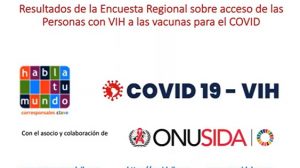
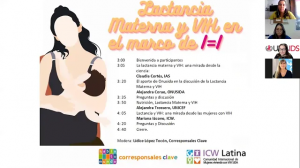
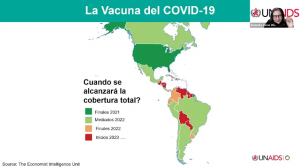
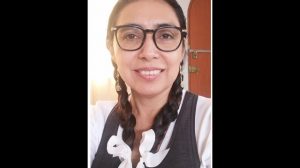

Añadir comentario